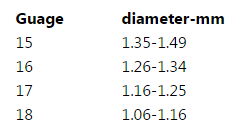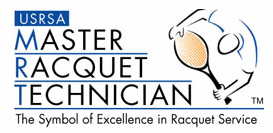Why Do the Strings Matter
Strings are one of the most important parts of the total racquet, and in fact are the only piece of the racquet that is intended to make contact with the ball. Players spend immense resources testing and demoing tennis racquets. Then invest hundreds of dollars on the frames, but then when it comes time to choose a string to install into their new racquets, just ask their stringer, “What is the cheapest string you have?”. The strings do matter, and here is some information that might help in understanding that “the strings do matter!”.
String Materials - Today strings are made of four predominate materials:
- Natural Gut - is a made from cows intestines, and is the original racquet string, and to this day the standard by which all others are measured. Nothing matches the elastic properties of natural gut-nothing! Natural Gut historically had been, and for some still remains, the overwhelming choice of touring pros that prefer maximum feel in the racquet. Think of it this way. If you spend the money for natural gut you're probably going to keep it in the racquet much longer than your usual synthetic (man this stuff) Eventually the gut will lose its playability and you'll have to restring but during this process, you'll see that your set of natural gut kept playing much better for a longer period of time. Natural gut offers unsurpassed "feel" of the ball and because of its natural texture, it tends to grab or cup the ball better than any other string. Another characteristic of natural gut that is often overlooked is the fact that it is more elastic at higher tensions, like between 55-65 lbs. When string stretches at higher tensions the natural gut is going to continue to stretch more, while a synthetic product will start to level off more as the load increases. One last thing about gut; if you're a player that is suffering from tennis elbow, there's nothing better than natural gut for your game and you arm.
- Nylon - is basically what everyone has historically referred to as synthetic gut. There are so many variations of this stuff out there today that a player can get confused just reading the list. Keep in mind however, that in the last 20-25 years there's been a vast improvement in nylon based strings. Over 70% of the players out there today are using nylon based synthetics.
- Polyester or Co-Polyester - is a very durable string that most of the pros on the tour these days are using, at least on the mains (the up and down strings) of their racquets. However, keep in mind that if poly based string is tensioned over 55lbs, you are typically stretching the material beyond it elastic limit. (Note: There is a lot more to this discussion then I will go into here.) Also polyester based strings will typically lose their tension quicker than standard nylon based synthetics. For a while now, we have been recommending players who have historically strung their racquets with poly based strings at over 55lbs, try to lower their tension. The vast majority are finding the poly based string plays better at this lower tension, while still giving them the control they like. Poly based strings tend to take longer to break, but after only 20 hours of play (that is only playing about 10 times) these strings have lost their elasticity and thus their playability.
- Kevlar - is by far one of the most durable materials for strings out there, but it's also very stiff. Before polyester strings were readably available, Kevlar was the only choice for string breakers. This string, and ultra light tennis frames, in our option has caused more tennis elbow issues, and for this reason we choose not to carry any Kevlar based strings. We are more than happy install them if you bring us the string.
Other things to consider:
Tension - There is an old adage – tight for control and loose for power. Tests have shown that ten pound change in tension will change ball speed (i.e.: power) by about a couple miles an hour (does not sound like a lot); but this will make a difference of 6-10 inches in how far the ball travels.
Elasticity - What is very important about strings is their elasticity. This is how much they stretch when hit and how fast they recover. (How is your trampoline today). A high elasticity strings (like natural gut and multifilament) gives both more power and more control.
Loss of Tension and Elasticity - As strings age, they slowly lose both tension and elasticity, and you really should restring your racquet. Think of a rubber band that has been stretched. After a period of time, the rubber band will lose its elasticity and does not return as much energy as when it was first stretched. When this happens the string stretches back as a ball hits the string bed and does not snap back with the same energy as fresh strings. This is a subtle and gradual change you typically cannot feel. But, once you restring your racquet you will notice the sudden improvement in both control and power.
Restringing - A good rule of thumb is that you should restring about every 40 hours of play, or about 4 times a year if you play a couple times a week. For many players we just recommend at the beginning of each of your USTA seasons. Another reason to restring is that the strings over time begin to get notched and frayed, and may break at a key point in an important match. This is especially true if a player only has one racquet.
String Gauge – There is a general rule that with two identical types of string, the thinner gauge string will give more control, without giving up any power. Typically, strings come in either 16 or the thinner 17 gauge. Thinner strings bite into the ball, which will give the player a little bit more control. Thinner strings also have more elasticity which is what makes a string play better. If you are not a string breaker, we typically recommend 17 gauge, otherwise use 16 gauge for a little more durability.

String Breakage - Usually strings break because the mains slide across the cross strings and develop notches. The notches deepen and the stings break. The more top spin and the harder your serve, the more the mains move and the sooner the strings will break. Almost all string breakage is the mains; a broken cross string is not so common. Though poly based strings are typically very durable, solid poly based strings are very prone to shear breakage, if someone frames the ball at the edge of the frame. This can happen at any time, and is typically easy to tell, since the break will be near the edge of the frame and not in the middle of the racquet.
Closing Thoughts - It is our hope that this information helps you to understand “the strings do matter”, and how a fresh string job will help you to play better. In closing, I do find it ironic that the same player, who insists on opening new can of tennis balls every time they play, has a hard time understanding the benefit of fresh new strings every 2-3 months?
Cathy & Gordie Lehman |
 |
